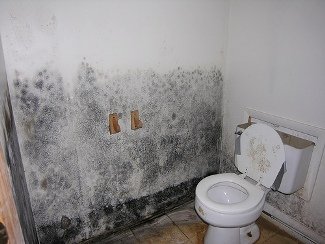What To Do If You Have Mold

What to Do If You Have Mold: Exposing the 4 Most Common Myths
If you’ve just found mold in your home, you’re likely searching the Internet professionals, asking- what to do if you have mold, until they arrive and fix the problem. Understandably, learning that you have a problem can be incredibly stress inducing, but we’re here to outline what to do next.
Mold is everywhere and affects each person differently. You may find yourself incredibly sensitive to a musty basement while your friend blissfully ignores the signs. While the idea of having the slow growing fungus in our homes incites a panic attack, fact is that we will eventually run into it in some form or another. What’s important is to be able to identify when it is a problem.
Call a Professional
There are definitely cases where you can remove mold yourself, especially if it only covers a small area or it’s on a surface that is easy to clean. However, even if you plan to clean it up yourself, it’s important to call a trained mold tester (yes, that’s a real thing) to come and determine what type of mold you have.
A mold tester can test your entire home. You will then know if the problem is limited to one area (and then you can remove it yourself) or if it’s a larger job.

How Do I Get Rid of Mold
Visit a Doctor
If you’ve noticed that you or your family have frequently been sick, then it’s time to visit your doctor and tell them about the mold in your home. Your doctor may have a different method of treating you once he or she knows about this.
Some people mistake reactions as allergic reactions: sneezing, coughing, mucus, and stuffy noses are all signs that you might have allergies or be breathing in toxic air Let your doctor know that your typical allergy medications aren’t going to do the trick in this case.
Identify the Cause Before Cleanup
The last thing you want is to think you’ve taken care of your problem only to have it return a couple of months later. Make sure that when you clean it up , you’re also cleaning up the problem. If you have a humid basement, work to insulate against moisture. If you noticed it growing up your wall, you may need to cut out the infected piece of drywall.
Remember that mold is the physical evidence of a larger problem and that simply wiping it away won’t solve the issue. Save yourself the future headache and fix everything right the first time.
Look into Structural Issues
Mold is caused by moisture. The fact that you have a newer home doesn’t mean that you aren’t susceptible. If you move into a new home and start to notice growth, it may mean that the materials used to build your home is not properly insulated.
Materials like drywall absorb moisture and if you live in a humid climate, it’s important to discuss with your contractor exactly what your home made out of and how your contractor plans to help you guard against mold.
We, at Sharper Home Solutions have seen all kinds of mold, all around the country. If you would like to schedule a free consultation, click this link: free consultation